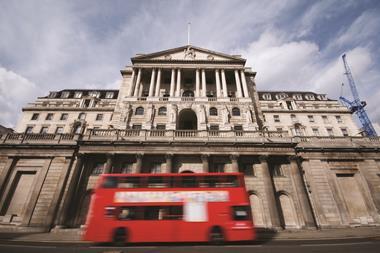Risk management behaviour in the real estate industry must improve to ward off potential dangers arising from the growing appetite for risk created by recent market dynamics, the UK’s Royal Institution of Chartered Surveyors has warned.
In a new report by the professional body’s “Trillion Dollar Risk Forum”, large property investors questioned whether the lessons from the 2008 financial crash had been learned.
Richard Stokes, head of global corporate affairs at RICS, said: “10 years on from the global financial crisis, it is incumbent on us all to ensure the lessons of the past cannot be forgotten.”
Though there had been much progress to improve risk management approaches, there was still more to be done, he said.
In the report – Risk and Return: Perspectives on Global Real Estate Investment – the RICS Real Estate Investment Risk Forum (IRF) found that compressed yields, driven by new all-time highs for real estate investment volumes, were enticing investors up the risk curve and into alternative assets in a bid for greater returns.
Some 57% of investors were worried about style drift away from their disclosed investment strategy, the report found.
The same proportion said their risk management processes were primarily driven by performance, while 24% said they were driven by compliance.
RICS said that, because of these findings, the IRF was calling on the industry to introduce a new system to improve the sharing of real estate data across borders. It also said the training of younger staff should be taken more seriously.
Martin Bruhl, chair of the IRF and CIO of Union Investment Real Estate, said: “We, as an industry, bear a heavy duty to support responsible and sustainable markets.
“We must ensure a sophisticated and professional approach to risk management to ensure the lessons from the past are learned sufficiently.”
The RICS’ IRF is made up of more than 40 real estate investors, representing over $1trn (€852bn) in real estate assets, including Bruhl, Nadja De Jager from CBRE and Tony Brown from M&G.














